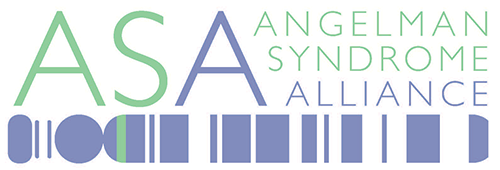ASA Grant 2016 Winners
The ASA 2016 grant has been awarded to two scientists:
Silvia Russo with "Potential therapeutic approach for synaptic deficit in Angelman syndrome: the JNK inhibitor peptide"
Recent studies have demonstrated that neurons of patients with Angelman syndrome do not work well. AS neurons show defects (deficit at the synapses) that do not allow them to communicate each other and this is at the basis of cognitive deficit in patients. In neurons of Angelman patients, special structures, called synapses, have an alterated shape and work bad. The synapses are crucial for learning, memory and cognitive functions. We want to study the mechanisms which cause this alterations in Angelman animal (mice) and human models . Partner Russo is preparing human models from patients’ blood which we will transform in stem cells and then differentiate in neurons. In particular the project is focused on a specific class of molecules, JNKs proteins which play an important role in regulate neuronal functions. Recently the partner Borsello has achieved experimental evidence on the therapeutic action of the D-JNKI1, a JNK-specific inhibitor peptide. She has preliminary data that after the treatment, synaptic alterations in neurons of models mice with Rett syndrome consistently ameliorate. It is a relevant finding considering the strong symptomatic overlap of Rett syndrome (RTT) with AS. Importantly the drug has already passed in clinical trials phase II and III for the cure of neurodegenerative diseases (ischemia)and apparently it is not tossic. The aim of this proposal is to investigate the involvement of JNK protein in the Angelman syndrome and to experiment the therapeutic effect of the D-JNKI1 peptide. and
Ben Philpot with "Quantifying EEG abnormalities and identifying biomarkers in Angelman Syndrome"
Epilepsy is common both in individuals with Angelman syndrome (~90%), and neural signatures underlying epilepsy can be measured non-invasively using electroencephalography (EEG). AS patients have characteristic EEG patterns that have been described qualitatively by clinicians but not quantified rigorously using analytical methods. There is an unmet need to quantify EEG patterns in individuals with AS, and to gain insights into the circuit-basis for these abnormalities through parallel studies in AS model mice. We hypothesize that parallel studies of human and mouse EEG in Angelman syndrome using quantitative methods will dually provide clinical biomarkers and mechanistic insight. In collaboration with the two dedicated Angelman syndrome clinics in the United States, we aim to facilitate AS clinical trials by providing objective, unbiased biomarkers
We would like to congratulate both scientists and both Ms Russo and Mr Philpot will receive the grant at the bi-annual meeting of the Angelman Syndrome Alliance on September 30th, 2016, where they will give an ASA-AWARD LECTURE.
Please check the site every now and then for information on the next ASA Grant.






